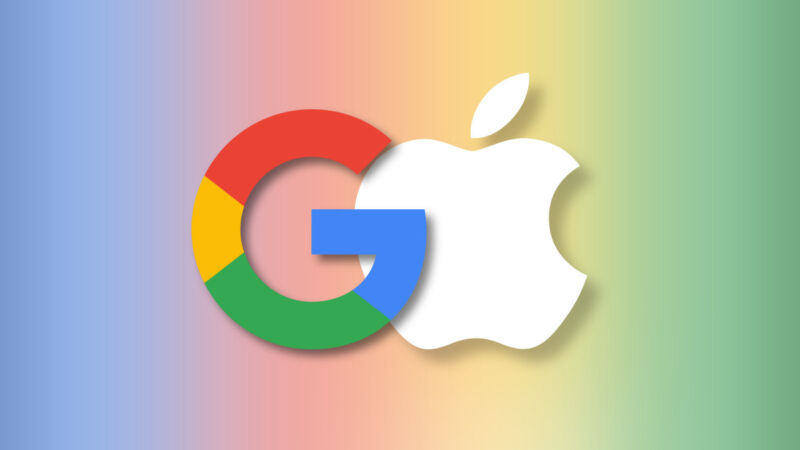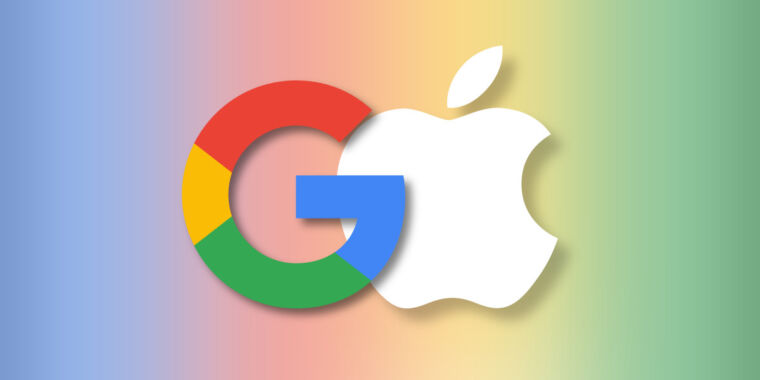
Benj Edwards
Monday's landmark antitrust ruling against Google shakes up one of the tech sector's longest-running partnerships.
At the heart of the case are the billions of dollars in exclusive agreements Google has made over the years to become the default search engine on browsers and devices around the world. No company has benefited more than fellow Big Tech giant Apple, which U.S. District Judge Amit Mehta called a “critical partner” of Google.
During a weeks-long trial, Apple executives took the stand to explain and defend the partnership. Under a deal that first took shape in 2002, Google paid Apple a share of search ad revenue to direct its users to Google Search by default, with payments set to rise to $20 billion by 2022, according to court findings. In return, Google gained access to Apple’s valuable user base: More than half of all searches in the U.S. now come through Apple devices.
Apple has been quiet since Monday's ruling. But it is likely to be heavily involved in the next phase of the case, which will address proposed remedies for Google's legal violations. Remedies in the case could be targeted or broad. The Justice Department, which brought the case, has not said what it will pursue.
“The biggest impact of the ruling will likely be felt by Apple,” said Eric Seufert, an independent analyst.
JPMorgan analysts wrote that the ruling left Apple with a series of “uncomfortable alternatives,” including the possibility of a new revenue-sharing agreement with Google that does not grant Apple exclusive rights as the default search engine, which would reduce its value.
Entering into revenue-sharing agreements with alternative search engines such as Microsoft's Bing would, they wrote, “result in lower economic benefits for Apple given Google's superior advertising revenues.”
Mehta noted in his ruling that the idea of replacing the Google agreement with a Microsoft-Bing deal had been floated before. Eddy Cue, Apple's senior vice president of services, “concluded that a Microsoft-Apple deal would only make sense if Apple's vision[ed] Google as someone [they] don't want to be in business and therefore are willing to risk income to get out. Otherwise it is [was a] “It's no surprise that we're staying with Google, as it's the closest we have to a secure future,” Mehta wrote.
Apple could build its own search engine. It hasn’t done so yet, and the judge in the case disagreed with the DoJ that the Google deal amounted to a “payment” to Apple to keep it out of the search engine market. An internal Apple study from 2018, cited in the judge’s opinion, concluded that even if it did so and kept 80 percent of searches, it would still lose $12 billion in revenue in the first five years after the Google split.
Mehta quoted an email from John Giannandrea, a former Google executive who now works for Apple, in which he said: “There is a significant risk that [Apple] could end up with a loss-making search engine that [is] “not better for the users either.”
Google has vowed to appeal the ruling. CRFA Research analyst Nicholas Rodelli said it was a “long shot” given the “close” ruling.
Rodelli said he believed the judge “is unlikely to issue a groundbreaking order,” such as an outright ban on revenue sharing with Apple. Depending on the remedy the judge decides on for Google's antitrust violations, Seufert said Apple “could be forced to accept a much less lucrative settlement” with Microsoft [over Bing] or may be prevented from selling search standards.”
“It will certainly change the relationship between Google and Apple,” said Bill Kovacic, former chairman of the Federal Trade Commission and a professor of competition law and policy at George Washington University Law School.
Mozilla's funding may be at risk
Apple isn't the only company potentially affected by Monday's ruling. According to the court, Google's payment to Mozilla in 2021 for the default position on its browser amounted to more than $400 million, about 80 percent of Mozilla's operating budget. A Mozilla spokesperson said it was “closely” reviewing the decision and “how we can positively influence next steps.”
Meanwhile, the search market is undergoing a transformation as companies like Google and Microsoft explore how generative AI chatbots can transform traditional search functions.
Apple’s partnership with OpenAI, announced in June, will allow users to direct their questions to the ChatGPT chatbot. A smarter Siri voice assistant powered by Apple’s own proprietary AI models will also create a new outlet for user queries that might otherwise go to Google. Apple’s models are trained using Applebot, a web crawler that, like the technology behind a search engine, aggregates public information from across the internet.
Traditional search shows no signs of slowing down. Research from Emarketer suggests that in the U.S. alone, search ad spending will grow by an average of about 10 percent per year, reaching $184 billion by 2028. Google, by far the dominant player, captures about half of that spending. Apple’s current deal with Google would have allowed it to unilaterally extend the partnership through 2028.
The Cupertino, California-based iPhone maker is facing its own antitrust battle. The DoJ’s antitrust division, led by Jonathan Kanter, filed a sweeping lawsuit against Apple in March, making it the latest Big Tech giant targeted by the Biden administration’s enforcers.
The legal troubles reflect a continued decline in Apple’s relationship with policymakers in Washington, despite an effort by CEO Tim Cook to ramp up the company’s lobbying of the Biden White House, according to research by the Tech Transparency Project. TTP found that Apple spent $9.9 million on lobbying the federal government in 2023 — the most in 25 years but still far lower than companies like Google, Amazon and Meta.
© 2024 The Financial Times Ltd. All rights reserved. May not be redistributed, copied or modified in any way.

